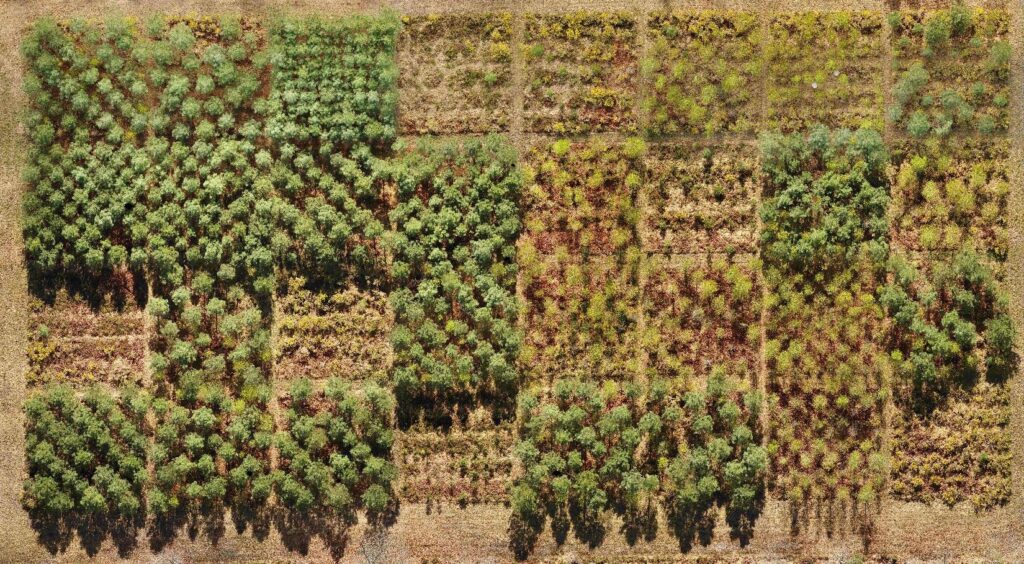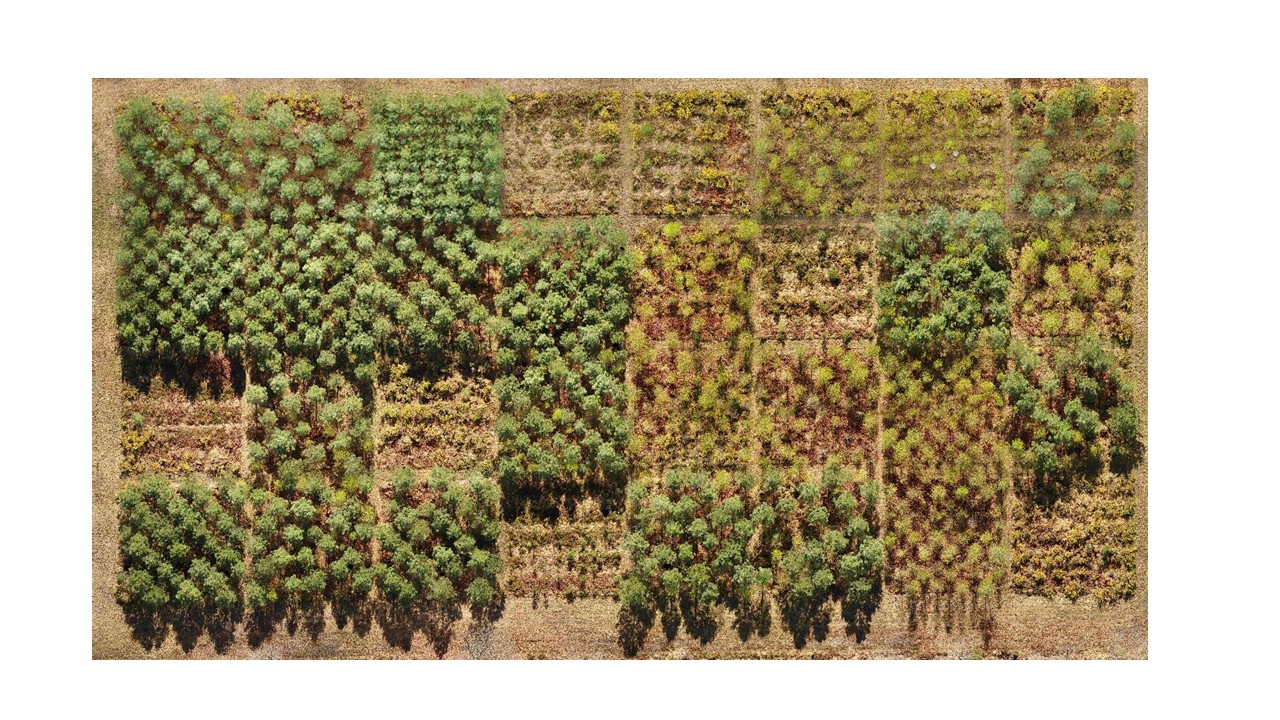
To mitigate climate change, the role of forests in carbon sequestration and storage has become increasingly important. As primary forest cover continues to decline at an alarming rate worldwide, planted forests represent a relevant alternative for producing wood and storing carbon, particularly when established on abandoned former agricultural or industrial land. However, despite decades of research suggesting that greater species richness improves the productivity of forest ecosystems, planted forests are still mainly monocultures.
To determine whether plantation diversification would improve above-ground carbon storage, Warner et al (2024) compiled a dataset of 79 comparison tests between pure and mixed planted forests from North America, Europe and Australasia. On average, they found that aboveground carbon stocks in mixed planted forests were 70% higher than the average stock in the monocultures of their component species (overyielding), and 25% higher than the best performing monocultures (transgressive overyielding). The positive effect of mixing species began to be achieved as soon as two species were mixed.
These results, obtained mainly in young plantations, suggest that diversification could be a very promising short-term solution for increasing carbon sequestration in planted forests. Further research is now needed to overcome the silvicultural management problems of mixed plantations and the additional costs associated with diversification.
Warner, E., Cook-Patton, S. C., Lewis, O. T., Brown, N., Koricheva, J., Eisenhauer, N., Ferlian, O.; Gravel, D.; Hall, J. S., Jactel, H., Mayoral, C.; Meredieu, C.; Messier, C.; Paquette, A.; Parker, W. C.; Potvin, C.; Reich, P. B.; Hector, A. (2023). Young mixed planted forests store more carbon than monocultures—a meta-analysis. Frontiers in Forests and Global Change, 6, 1226514

